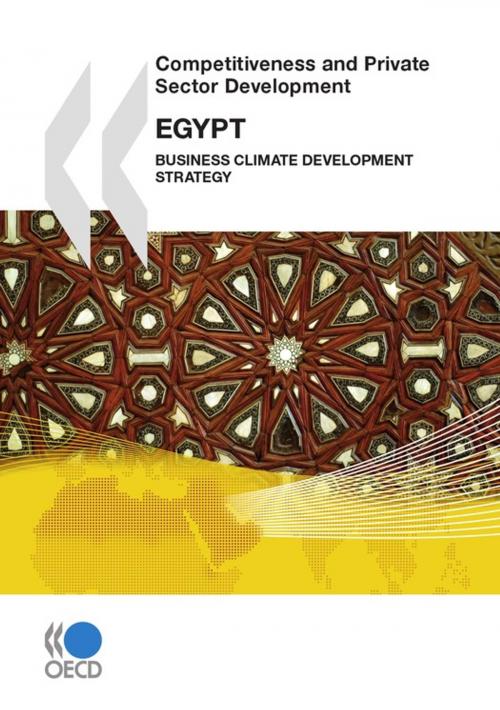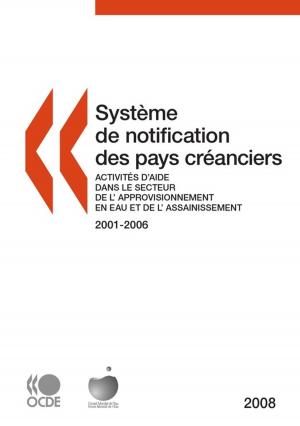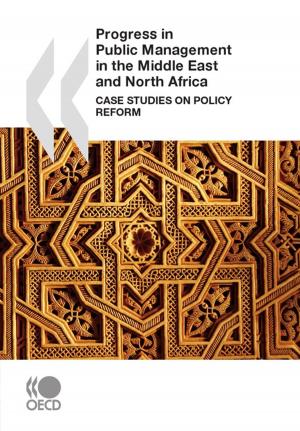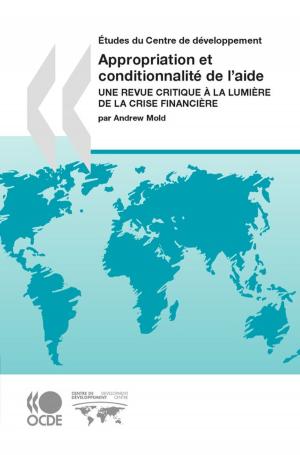Competitiveness and Private Sector Development: Egypt 2010
Business Climate Development Strategy
Business & Finance, Finance & Investing, Finance| Author: | Collective | ISBN: | 9789264087408 |
| Publisher: | OECD | Publication: | October 4, 2010 |
| Imprint: | OECD | Language: | English |
| Author: | Collective |
| ISBN: | 9789264087408 |
| Publisher: | OECD |
| Publication: | October 4, 2010 |
| Imprint: | OECD |
| Language: | English |
As part of a far-reaching programme of economic reforms, the Egyptian government is seeking to improve its business climate to attract more investment and stimulate growth and job creation. The Egyptian Ministry of Investment has asked the OECD to carry out an in-depth assessment of Egypt’s business climate to identify policy priorities and actions needed to foster more domestic, regional and international investment. This report presents the results of that assessment. It also highlights Egypt’s key reform priorities and describes the challenges and opportunities in improving Egypt's business climate to help Egypt realise its full potential as a high-growth economy.
The OECD assessment is the first phase of a Business Climate Development Strategy (BCDS) which identifies policy priorities and proposes specific reforms and actions to enable Egypt to achieve measurable improvements in its business climate. One key finding is that Egypt’s investment and trade policy reforms have moved the country’s business climate closer to best practice in OECD economies. However, the report notes that to attract further private investment, Egypt needs to improve the country’s anti-corruption measures, skills development, infrastructure and access to finance, especially for the country's small-and-medium sized enterprises. BCDS Egypt offers specific recommendations on how policies, institutions and regulations can be improved to increase predictability for investors and make Egypt a prime investment destination.
This review was carried out as part of the wider MENA-OECD Investment Programme. It uses a new BCDS methodology that evaluates the business climate in 12 policy areas and draws on core OECD instruments, such as the Policy Framework for Investment (PFI), which have been successfully applied in other countries. By helping countries prioritise their actions and build consensus among stakeholders, the BCDS process supports the successful implementation of reforms to develop the private sector in the MENA region.
As part of a far-reaching programme of economic reforms, the Egyptian government is seeking to improve its business climate to attract more investment and stimulate growth and job creation. The Egyptian Ministry of Investment has asked the OECD to carry out an in-depth assessment of Egypt’s business climate to identify policy priorities and actions needed to foster more domestic, regional and international investment. This report presents the results of that assessment. It also highlights Egypt’s key reform priorities and describes the challenges and opportunities in improving Egypt's business climate to help Egypt realise its full potential as a high-growth economy.
The OECD assessment is the first phase of a Business Climate Development Strategy (BCDS) which identifies policy priorities and proposes specific reforms and actions to enable Egypt to achieve measurable improvements in its business climate. One key finding is that Egypt’s investment and trade policy reforms have moved the country’s business climate closer to best practice in OECD economies. However, the report notes that to attract further private investment, Egypt needs to improve the country’s anti-corruption measures, skills development, infrastructure and access to finance, especially for the country's small-and-medium sized enterprises. BCDS Egypt offers specific recommendations on how policies, institutions and regulations can be improved to increase predictability for investors and make Egypt a prime investment destination.
This review was carried out as part of the wider MENA-OECD Investment Programme. It uses a new BCDS methodology that evaluates the business climate in 12 policy areas and draws on core OECD instruments, such as the Policy Framework for Investment (PFI), which have been successfully applied in other countries. By helping countries prioritise their actions and build consensus among stakeholders, the BCDS process supports the successful implementation of reforms to develop the private sector in the MENA region.















